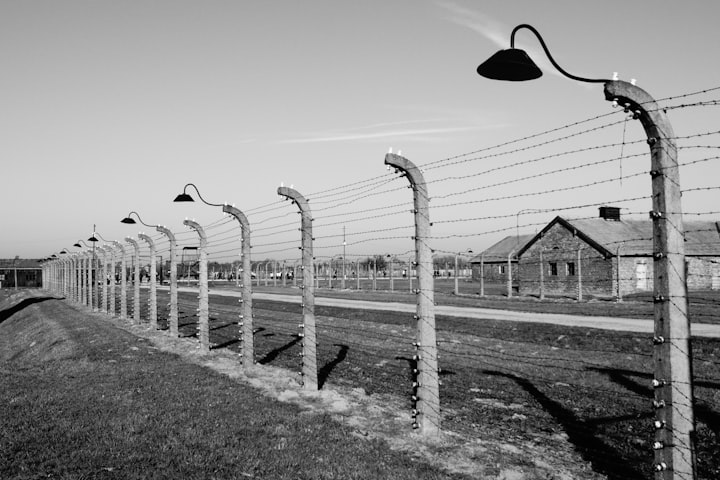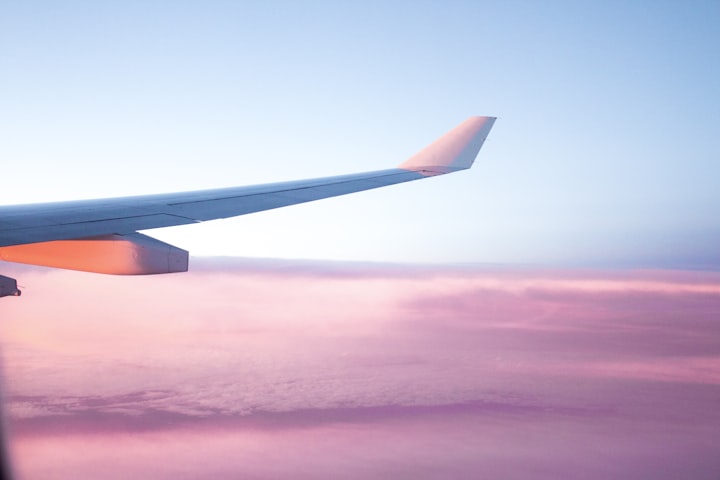Auschwitz, Death Anxiety, and 2020
My cancelled trip for this year wasn't anything to smile about. Now, it's more relevant than ever.

“History doesn't repeat itself, but it often rhymes” – Mark Twain
It's embarrassing to say, considering this challenge is about backpacking to a relaxing dream destination, but in 2021, I will be visiting Auschwitz. Yes, the Auschwitz. Final destination of every Holocaust movie. A nightmare for survivors. Perhaps the literal definition of hell on earth.
Touring the infamous concentration camp is part of the itinerary for when my family and I go to Poland. We were supposed to make the trip this summer, but because of a certain virus we all know and love (cough, sarcasm, cough), the excursion has been postponed to August of next year. We'll be visiting other parts of Europe, too. I'm excited to re-visit Florence, Italy, and see new cities like Verona, Budapest, and Warsaw. But paying our respects in Auschwitz is set to be the saddest day in our two-week journey. It's depressing, but too monumental to skip.
Before the pandemic, I had a complicated-yet-faraway relationship with the Nazi creation. I am very Polish and made up of some Ashkenazi Jewish DNA, meaning my ancestors could have very well perished inside the camp. If not my ancestors, perhaps friends of my ancestors. If I lived in 1940's Nazi-occupied Poland, my family and I would qualify to be cremated in Auschwitz's ovens.

At the very least, the Holocaust has still affected my family almost 80 years later. Two summers ago, I attempted to trace back my Polish lineage on Ancestry.com, but could only find family members up to a certain date. I was confused as to why the website wouldn't let me go back further; it allowed me to explore my Irish, Italian, and British roots more thoroughly. Then my Dad and grandmother revealed why it was impossible. "The Nazis burned all our Polish records," they gravely told me, "they wanted to exterminate every part of us. Even our past."
Despite this horrible revelation, Auschwitz was still this distant historical landmark for me. It was a big bad wolf in a fairytale. The years of mass death which occurred there felt barbaric and impossible by today's standards. Sure: I've lived through 9/11 and several worldwide tragedies. But in 2019, the fear of watching your family members die all at once felt irrational. Unrealistic. Almost impossible. A thing of the past.
Then 2020 happened, and that fear has become very legitimate.
Do you remember the first time you learned what death was? I vaguely do. I know I realized what it was in Catholic school, when my kindergarten teachers explained the concept of heaven to the class. Something about it felt honorable. Exciting, even. It was comforting to know that if ever I made a grave mistake, I had a cloud world and cool angels waiting for me up in the sky.
I went to my first funeral when I was around 9 for an aunt I didn't know. My parents felt it best to get acquainted with funerals from an early age, so they wouldn't be so painful later on. I didn't feel grief's keen sting until my favorite pet cat died when I was 12. For a short time, I even made money off death: I had a summer job singing at Catholic funeral services. While crooning hymns and the Ave Maria, I'd watch black-clad attendees slowly break down into tears.
So far, two close mentors of mine have passed away: both of them high school teachers. Still, despite all my brushes with death - seeing it, hearing about it, and even profiting off of it - nothing about it felt real to me. Until this year.
It was either April or May when I realized my own mortality. If I had to compare the experience, it was like losing my virginity or learning Santa Claus isn't real. COVID-19 cases were still high, I had seen some vlogs and subreddits about near-death experiences, and all of a sudden, it hit me that myself, my family, and everyone I know and love will die.
Of course I already knew it was inevitable. Of course I know there is no way to prevent it. But until this year, I hadn't thought about it with much depth. I never thought about the process of dying, the pain of it. What realistically comes after, if there even is an after. The fact that it can happen any day, and I will never be prepared for it. The fact that one day, I will no longer exist. Just like how I never existed in the past. Our lives are bookended by two experiences we do not get to remember: coming into this world, and coming out of it.

I attribute my avoidance of thinking about death to some factors. For most of my life, I've been a student. All I cared about was getting through school. That was my only purpose. Now that I've graduated college and don't intend to get a master's degree, my syllabus of life is emptier. I spend my days alone in my room, typing words into a computer keyboard hoping that someday, It'll land me a full-time job to pour effort into. Not having a concrete purpose anymore gives me too much time to think. With uncertainty comes contemplation over my life's meaning. Now that I'm no longer a child, all that's left to do is work until I'm dead.
Of course, I also attribute my avoidance of thinking about death to life before the pandemic. Back when we didn't have to look at death charts every day or hear sad stories from healthcare workers about their patients succumbing to coronavirus. I never realized until 2020 that death is an extremely taboo subject. People don't die, they "pass away." We don't talk about what it's like to die in our younger years because there's "still so much time left." We like to think we'll live forever. We put off coming to terms with the reality.
There was a good two or three weeks when my death anxiety became a problem. I was thinking about COVID-19 and those near-death experience stories when my grandfather came to visit. Because he refuses to get his own smartphone, he asked me to look up the death dates of famous actors he remembered from his childhood. He'd say, "Well, that's life. One day, it's just gone."
That night, I couldn't sleep. I realized losing consciousness to sleep was like a preview of death. A horrible thought crossed my mind: will I fall asleep and never wake up?
To make matters worse, the psychic world made me think more about death. To combat boredom during early-pandemic quarantine, I would pull a random tarot card every day and compare my daily happenings to the message of the card. For some reason, I pulled the infamous Death card every other day. When it wasn't Death, it was the Ten of Swords (depicting a dead body with ten swords sticking out of its back). I made sure to shuffle the cards well, but nothing could stop me from randomly picking Death!
One week, I pulled the card multiple times only to learn my friend's mother lost her life from a stroke the following week. My mom saw how much it freaked me out, so she encouraged me to burn sage in my bedroom.
I know I'm not the only one to contemplate death during the pandemic. Several of my friends revealed they've thought about it more since March - especially the fact that it can happen to their older relatives. I had a long conversation with my very wise friend, Hannah, about death anxiety.
"Personally, I'm not scared of dying," she told me. "I don't really understand the fear. Death's a natural part of life, right? No use worrying about what comes after."
I nodded. Perhaps she was right. Death isn't something we can control and eventually must accept. It made me think...maybe I'm not scared of dying so much as I'm scared of dying without getting to do the things on my bucket list. I want my own apartment, marriage, and maybe some kids (human or feline) before I even confront the process of death. What scares me most about dying from COVID-19 is that it happens so quickly without much time to prepare for it. It's a lonely, painful experience.
Maybe the experience has some similarity to being imprisoned inside a concentration camp. I think of all the victims exterminated inside Auschwitz, and I wonder what dreams and aspirations they had before their lives were tragically cut short. There are many similarities between COVID-19 in the United States and the Holocaust, including...
- How it's lead to widespread death.
- The fact that this death has been caused by a lack of oxygen (Zyklon B gas chambers and COVID-19 attacking the lungs).
- The fact that it's perpetuated the mythology of a "superior race": the Aryan race and white supremacy. We've seen an upsurge of anti-racist protests in 2020. Ethnic minority groups have been disproportionately affected by the virus, just like how European Jews were mostly affected during the Holocaust.
- How it's isolated friends and family.
- How some claim it's a hoax.
- And of course, how the unnecessary death toll was heightened by poor national leadership.
It will be a painful experience, but I know I must go to Auschwitz. I need to see the room full of shoes, the train tracks, and the witness accounts. It is the closest I can get to death without actually dying. To me, it is a symbol of all preventable national tragedy. It is where I want to mourn the past and the present. Where I want to remember my ancestors and my fellow departed Americans.
Auschwitz was a place where its captors felt that horrible fear I'm feeling today: knowing it could be over at any moment. To look on the bright side, not everyone who went to Auschwitz perished. The Soviet Army liberated the prisoners on January 27, 1945. Of course, not everyone will die of COVID-19. Most people have survived the disease.
Still, it's important to remember the victims of both tragedies. Dying is not a desirable act, but it does commend respect. I hope that when vaccines are readily available and this coronavirus becomes a thing of the past, we remember those whose lives were cut short.
That's how I will combat my death anxiety: by going to Auschwitz and remembering those who unwillingly dwelled inside it. A fear linked with my thanatophobia is that when I die, no one will care about my existence. But mourning those lost in Auschwitz gives me hope, because if I am willing to remember, perhaps others aren't willing to forget either. xxx
I would like to dedicate this article to the victims and survivors of the Holocaust and COVID-19. You will never be forgotten.
About the Creator
Kathryn Milewski
Insta: @katyisaladybug
Also a blogger at Live365.com
Playlists, memoirs, and other wacky pieces.






Comments
There are no comments for this story
Be the first to respond and start the conversation.